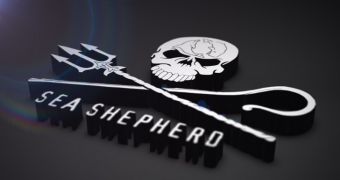This June 4, environmental group Sea Shepherd announced that, together with nonprofit organization the Ocean Alliance, it was to officially launch Operation Toxic Gulf 2014.
In a press release on the matter at hand, the green group explains that, unlike many other of its campaigns, which chiefly focused on preventing whaling and poaching activities, Operation Toxic Gulf 2014 is basically a research project.
Thus, together with Ocean Alliance, Sea Shepherd is to send an international crew of specialists to the Gulf of Mexico. The crew is expected to reach these waters sometime this summer, the organization explains.
While there, the Operation Toxic Gulf 2014 crew will try and gain a better understanding of how the Deepwater Horizon oil spill affected natural ecosystems and aquatic wildlife in the Gulf of Mexico.
Their focus will be on sperm whales, which Sea Shepherd claims can serve as an indicator of the health and balance of the Gulf. Thus, the specialists are to collect and analyze whale mucous and waste samples.
The end goal is to obtain information concerning these marine mammals' exposure to petroleum products, dispersants and metals, and any damage that might have occurred as a result of this exposure, information shared with the public says.
Although sperm whales will be the chief focus of this research project, the Operation Toxic Gulf 2014 crew will also try and assess the overall health condition of dolphins, sea turtles, manatees, pelicans, and fish in the Gulf of Mexico.
“Though the oil spill is no longer prominent in the news headlines, it very much remains a threat to marine life in the Gulf of Mexico and to the oceans as a whole,” Sea Shepherd US Administrative Director Susan Hartland says in a statement.
Furthermore, “Sea Shepherd is proud to work with Ocean Alliance on this important campaign. Together, we bring decades of experience in direct action conservation and scientific research desperately needed in the Gulf.”
At the time the Deepwater Horizon oil spill occurred, about 200 million gallons (750 million liters) of crude oil leaked into the Gulf of Mexico. Earlier this year, researchers announced that, according to their investigations, some of this oil was becoming part of local ecosystems.
More precisely, evidence at hand indicates that oil at the bottom of the Gulf of Mexico is gradually being buried under sediment deposits. According to Andreas Teske with the University of North Carolina, this is actually a good thing.
“The oil spill has become part of the the geological record. Since one cannot take a gigantic vacuum cleaner and clean up this stuff, getting buried is the best alternative,” the researcher said in a statement back in May.

 14 DAY TRIAL //
14 DAY TRIAL //